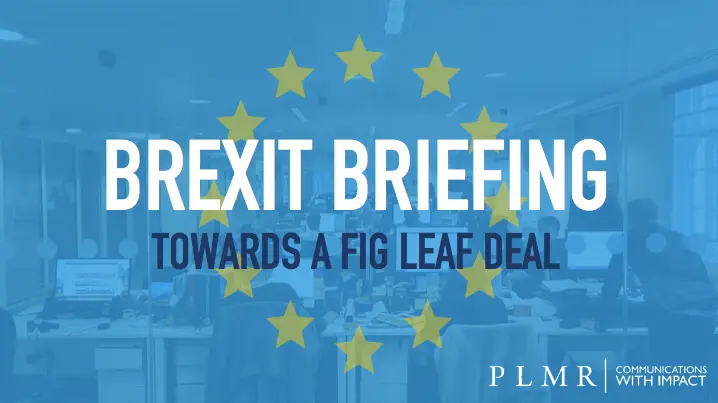Political figures are weighing the likelihood of a “no deal” Brexit, where the UK leaves the EU in March 2019 without a deal in place setting out the future relationship between the two parties. Trade Secretary Liam Fox has said he expects this is now the most likely course of events, and Brexit Secretary Dominic Raab has admitted that the government has contingency plans in place for a “no deal” Brexit. But perhaps the more likely outcome is a “fig leaf” deal, where the two sides agree only the most pressing issues and delay a comprehensive agreement until some future date.
Conservative politicians are being forced to reckon with two uncomfortable facts. First, there is probably not enough consensus on the Tory benches to allow the government to agree to a meaningful Brexit deal. (And Parliament must have a say on the deal – this is inscribed in statute).
Second, it is becoming apparent that there is probably not the political will in Berlin, Brussels or Paris to offer the UK a deal that preserves the benefits of EU membership. For all UK ministers’ talk of the mutual benefits of preserving trade relations, it seems that Continental leaders want to demonstrate (understandably) that there are real benefits to being in the EU and there are real costs in leaving.
But it would be reckless to leave certain pressing issues unaddressed before March 2019. The status of EU nationals in the UK (some three million people) and UK nationals in the EU (over one million people) must be agreed to avoid an unprecedented legal crisis – and indeed, both sides have already agreed on this in principle, so formalising this in a fig leaf deal should be straightforward. Aviation rights need to be agreed to avoid the spectre of grounded planes, something that would be hugely damaging to economies across Europe. And the UK government has already outlined its fall-back position for preserving an open border in Ireland, albeit to the discontent of many Brexiteers.
So perhaps for the sake of business confidence and of continuity, a basic agreement will be struck and ratified just in time for the UK’s exit date. But the really knotty questions about the jurisdiction of the European courts, the movement of goods after 2020 and the UK’s access to EU markets will be left for another time – and perhaps another set of MPs and leaders.




